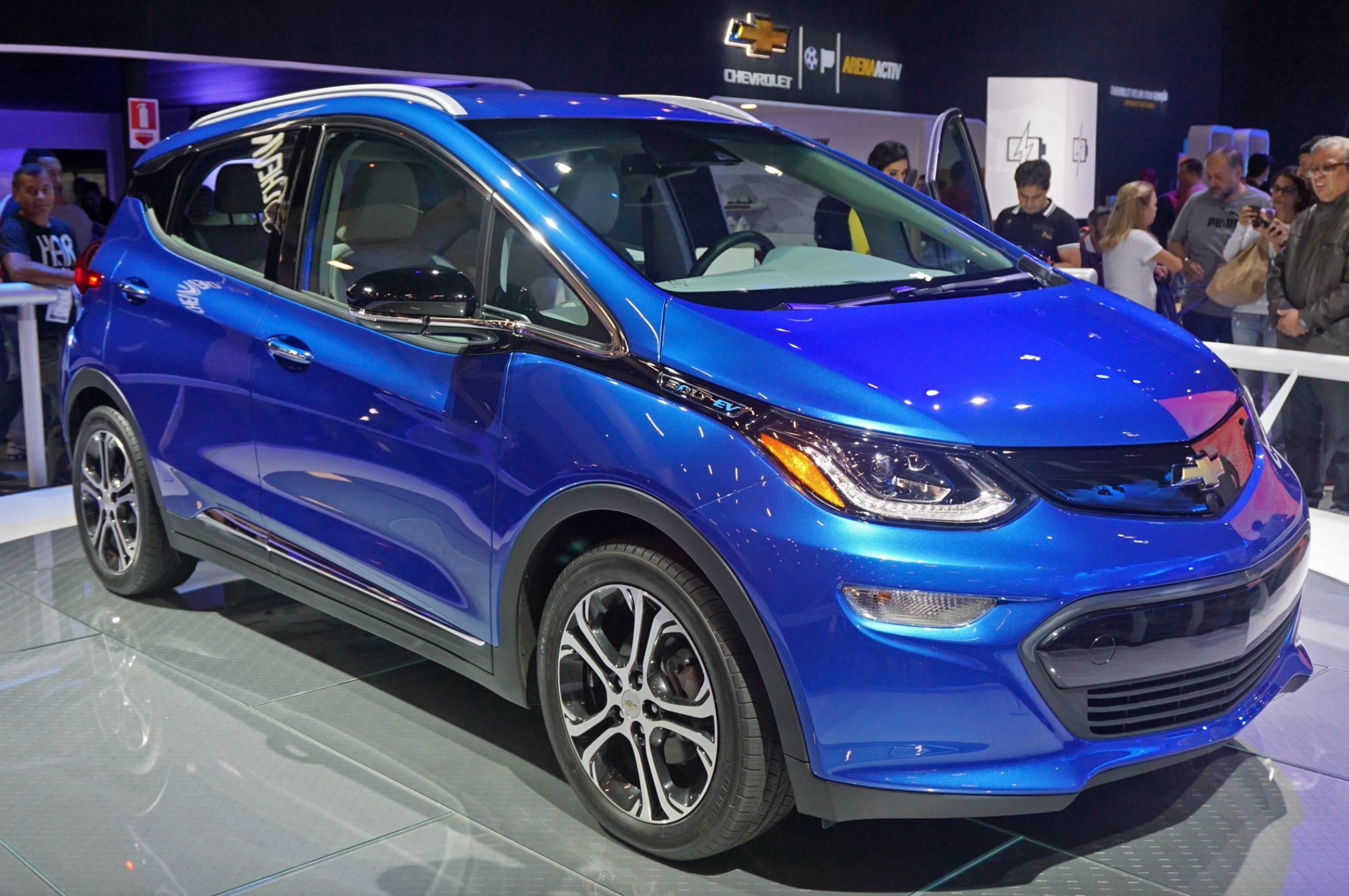Batteries for future EVs will be produced through the joint venture of GM and LGES, called Ultium Cells LLC.
The Chevrolet Bolt has been one of GM’s most ambitious projects in recent times. Co-developed with LG Corporation, the Chevrolet Bolt EV is the American automaker’s only offering in the ever-growing EV market as of now. The Bolt offers a smooth ride, a roomy cabin, and a range of standard features to appeal to the growing number of EV buyers. However, as the Bolt was growing in popularity day by day, it got hit by a serious recall back in November last year. This recall was related to a battery defect, which led to fires breaking out in several Bolt EVs across the country.
Apparently, things have taken a turn for the worse as of late, as Chevrolet’s parent brand GM is expanding this same recall. The latest recall covers a greater extent of EVs, hampering the company’s ambitions to amp up the sales of the Bolt EV. The company said that it would halt the sales of the Bolt EV on any car selling portal for an indefinite period of time. The question that arises in the mind of every Chevy loyalist is – What is this recall in question and how does it affect the future sales of the Chevrolet Bolt?
Details about the recall
Back in July, GM recalled the Chevrolet Bolt for a battery defect that caused fires, covering almost 69,000 Bolt EVs that were sold globally between 2017 and 2019. However, this time around, GM dramatically expands the recall to include even the Chevy Bolt models from 2019-2022. The recall now includes 9,935 Bolt EVs from 2019 and 63,683 units from 2020 to 2022.
This recall was originally set in stone by Chevrolet after 5 Bolt EVs caught fire. Chevy believed that it had come up with a solution in the form of a software update to solve the Bolt’s battery issues. Unfortunately, 2 of the repaired Bolt EVs caught fire, prompting Chevrolet to issue an expanded nationwide recall back in July. GM reported a total of 10 Bolt fires across the country. GM said that it will repair all defective battery modules in the Bolt EV as soon as possible.
The July recall came into place after GM and the NHTSA warned Bolt EV owners against parking their EVs inside their homes. Instead, they urged the owners to park their vehicles outside and away from homes after charging. Recently, GM restated this fact again, urging the owners of the newly recalled Bolt EVs to park their vehicles outside after charging instead of leaving them in their garage overnight. NHTSA also issued a consumer warning to Bolt owners about this issue and said that it is still investigating the matter.
According to the automaker, in rare cases, the batteries may have two manufacturing defects at once. The defects are a torn anode tab and a folded separator within the same battery cell, which increases the risk of a fire. After reporting the 10th Bolt EV fire in Chandler, Arizona, GM made a statement that it discovered manufacturing defects in certain battery cells produced at LG manufacturing facilities beyond the Ochang, Korea, plant.

Meanwhile, GM has requested the Bolt owners to set their vehicles to a 90% state of charge limitation using Hilltop Reserve mode for the 2017-2018 model year Bolts. For 2019 and beyond, customers need to use the Target Charge Level mode. GM also advised their drivers against depleting the battery level below 70 miles of remaining driving range.
What actions is GM taking to resolve this recall?
General Motors Co. promised that it would take a hit of $1 billion to expand the recall related to the Chevrolet Bolt EV. The high risk of fires from the high-voltage battery pack inside the EV prompted the American giant to take these bold steps. The Detroit-based automaker also said that it will be halting the sales of the Chevy Bolt EVs until the recall gets resolved. The company will also seek reimbursement from battery supplier LG, who provided them these batteries.
On this matter, LG released a statement, “The reserves and ratio of cost to the recall will be decided depending on the result of the joint investigation looking into the root cause, currently being held by GM, LG Electronics, and LG Energy Solution.” LG also extended its hands to actively help its client and partners to ensure that the recall gets resolved smoothly.
The moment the latest Bolt recall was issued, GM shares were down 2.2% in after-hours trade after dipping 0.6% recently. On the other hand, South Korean battery manufacturer LG Electronics cut its second-quarter operating profit by more than a fifth. This profit will reportedly be used for the GM recalls. LG Electronics supplies the batteries to GM through LG Energy Solution (LGES), which is a wholly-owned battery subsidiary of the LG Chem division. However, Chevy isn’t alone, as even Hyundai said earlier this year that it would reserve $900 million for replacing the faulty LG batteries in 82,000 EVs owing to fire risks.
While Chevy is spending a lofty $1 billion to resolve the latest recall, even the previous Bolt recall cost them $800 million to fix. GM said that it is working with LG to get to the root of the problem and replace the defective battery models before they cause further harm.
Batteries for future EVs will be produced through the joint venture of GM and LGES, called Ultium Cells LLC. This project is building battery cell plants in Ohio and Tennessee, with two more plants in the cards after the inauguration of the first two. The next-generation batteries that will be produced in these plants will be used in future Hummer and Cadillac vehicles. Hopefully, with this venture, GM won’t get dragged into any turmoil regarding battery defects in the future.


Join the conversation!